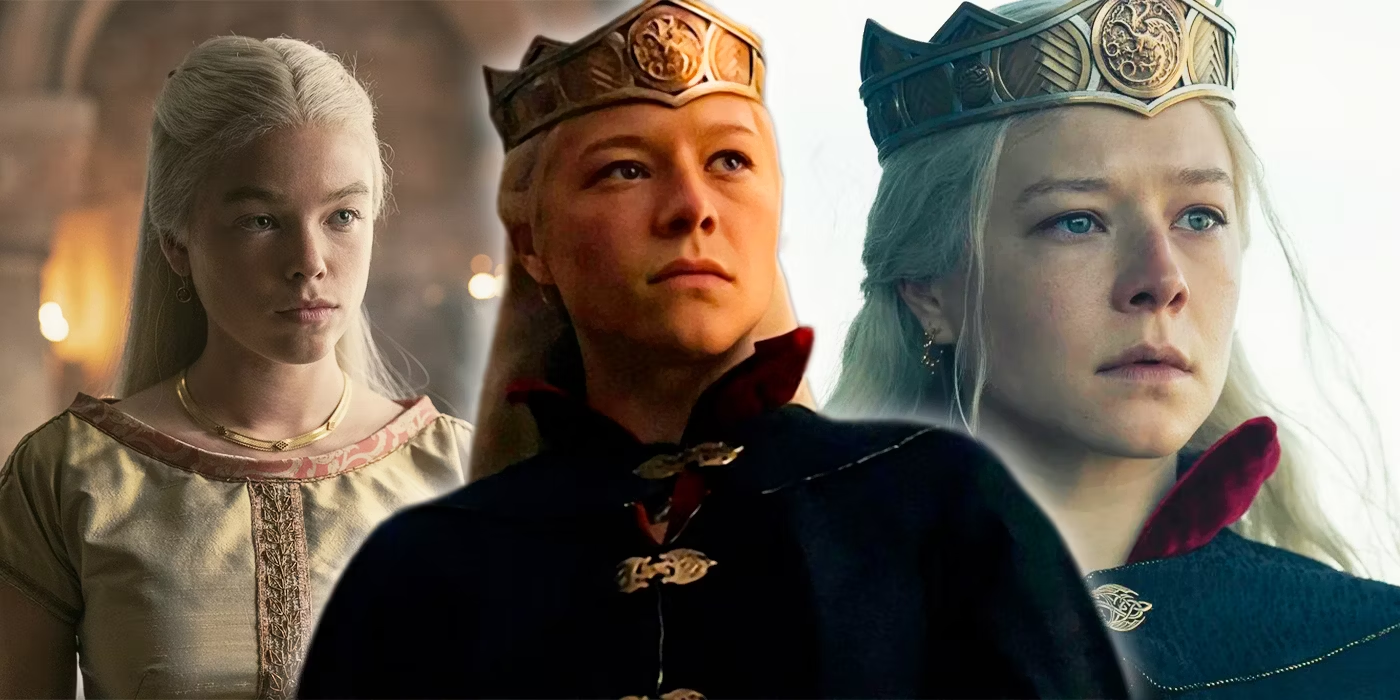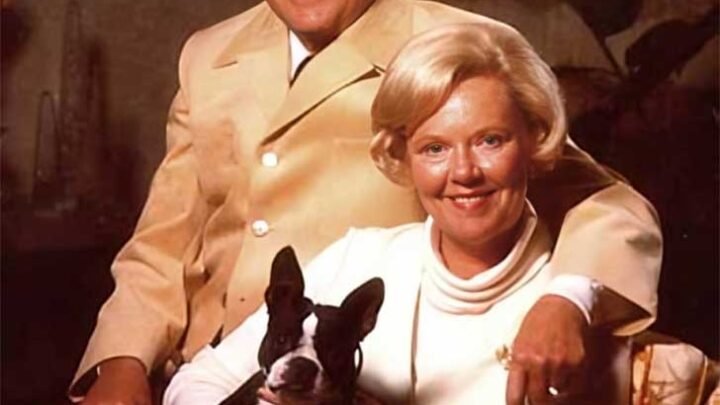The question of “who betrayed Rhaenyra” is one that has fascinated fans of George R.R. Martin’s A Song of Ice and Fire universe and its TV adaptations, especially the recent House of the Dragon series. Rhaenyra Targaryen, a central figure in the history of the Targaryen dynasty, faced numerous challenges during her claim to the Iron Throne. Her struggle was marked by political intrigue, familial conflict, and yes, betrayal. So, who betrayed Rhaenyra, and what was their motivation?
In this article, we’ll unravel the key players in the web of deceit surrounding Rhaenyra Targaryen. Through this lens, we’ll explore not only who betrayed her but also the broader implications of loyalty, power, and trust in the world of Westeros.
The Rise of Rhaenyra Targaryen
To understand who betrayed Rhaenyra, we must first delve into her story. Rhaenyra was the daughter of King Viserys I Targaryen and was named his heir to the Iron Throne, a bold move in a male-dominated society like Westeros. Her ascension was meant to be a turning point for the kingdom, promising a strong Targaryen queen.
Rhaenyra was raised with the expectation that she would one day rule the Seven Kingdoms. However, as her father’s health declined, tensions began to rise, and rival factions sought to challenge her claim.
Key Players in Rhaenyra’s Life
Before diving into who betrayed Rhaenyra, it’s important to understand the key individuals in her life:
- Viserys I Targaryen: Rhaenyra’s father, who named her as his heir.
- Alicent Hightower: The second wife of Viserys and mother to Rhaenyra’s half-brothers, including Aegon II, a rival claimant.
- Daemon Targaryen: Rhaenyra’s uncle and later husband, a powerful and unpredictable ally.
- Otto Hightower: Alicent’s father and a key figure in the betrayal.
- The Green and Black factions: These two sides represented the forces supporting Alicent’s son Aegon II (the Greens) and Rhaenyra (the Blacks).
The Betrayal of Rhaenyra: A Complex Web of Deceit
When asking who betrayed Rhaenyra, the truth is that it wasn’t just one person—it was an intricate network of political and personal betrayals. Let’s examine the most pivotal figures who played a part in her downfall.
Alicent Hightower: The Queen Consort’s Role
Alicent Hightower, once close to Rhaenyra, played a central role in the betrayal. Though the two were friends in their youth, their relationship soured after Alicent married Rhaenyra’s father, King Viserys. Alicent bore sons, including Aegon II, and their existence posed a direct threat to Rhaenyra’s succession.
Alicent became a leader of the “Greens,” a faction that supported her son Aegon’s claim to the throne. When Viserys died, Alicent kept his death a secret long enough to crown Aegon as king in a shocking coup. This move was a direct betrayal of Rhaenyra, who had been named the rightful heir.
- Why Alicent Betrayed Rhaenyra: Alicent believed that her son Aegon had a stronger claim and that Rhaenyra’s rule would destabilize the realm. She was also influenced by her father, Otto Hightower, who was determined to see his bloodline on the Iron Throne.
Otto Hightower: The Mastermind Behind the Scenes
Otto Hightower, Alicent’s father, was another key player in answering the question of who betrayed Rhaenyra. As Hand of the King under Viserys I, Otto was a master manipulator who sought to advance his family’s interests at all costs. He worked tirelessly to ensure that Aegon II would ascend the throne, positioning himself as a puppet master behind the scenes.
Otto’s political maneuvering, combined with his influence over his daughter Alicent, made him one of the most dangerous figures in Westeros at the time. His betrayal of Rhaenyra was not personal but rather a calculated move to ensure the power of House Hightower.
Ser Criston Cole: The Turncloak
Ser Criston Cole, once a loyal supporter of Rhaenyra and a member of her Kingsguard, shocked many when he turned against her. Originally, Criston seemed to be an ally, even rumored to have romantic feelings for Rhaenyra. However, after a personal falling out, his loyalty shifted dramatically.
Criston became a staunch supporter of Aegon II, leading the faction that sought to remove Rhaenyra from power. His betrayal was not only a personal one but also a political one, as he played a major role in crowning Aegon II and actively fighting against Rhaenyra’s forces.
- Why Criston Betrayed Rhaenyra: Criston’s reasons for betrayal are often seen as stemming from personal disappointment, but his ambition and desire for power may also have influenced his actions.
The Small Council: Divided Loyalties
The Small Council, a group of advisors to the king, was another source of betrayal for Rhaenyra. While some members supported her claim, others were secretly plotting her downfall. After Viserys’s death, the council became a battleground, with members like Otto Hightower and Ser Criston Cole pushing for Aegon II’s coronation.
The council’s betrayal was not a unified one, but the actions of those who opposed Rhaenyra contributed to her losing the throne.
Betrayal from Within: Rhaenyra’s Own Court
Even within Rhaenyra’s own ranks, there were instances of betrayal. Several of her closest allies and family members made decisions that ultimately harmed her cause.
- Daemon Targaryen: While Daemon, Rhaenyra’s uncle and later husband, remained fiercely loyal to her, his actions were often unpredictable. His ambition and ruthless nature sometimes worked against Rhaenyra’s interests.
- Lord Corlys Velaryon: Though initially a strong supporter of Rhaenyra, Lord Corlys had moments of doubt and political maneuvering that threatened to weaken her cause.
The Political Game: Why Betrayal was Inevitable
The question of who betrayed Rhaenyra ultimately reveals a larger truth about the political climate of Westeros. In a world where power is everything, alliances shift constantly, and betrayal is almost a natural part of the game. Rhaenyra’s downfall was the result of multiple betrayals, but it also reflected the dangers of trusting too easily and the perils of ambition.
Here’s why betrayal was almost unavoidable in Rhaenyra’s story:
- Competing Claims: The existence of Aegon II, a male heir, meant that many in Westeros viewed Rhaenyra’s claim as weaker, despite her father’s wishes.
- Gender Politics: Westeros was a deeply patriarchal society, and many were unwilling to accept a queen regnant.
- Personal Ambitions: Many of Rhaenyra’s supposed allies had their own ambitions, which often conflicted with her goals.
Table: Key Betrayers of Rhaenyra
| Betrayer | Role | Reason for Betrayal |
|---|---|---|
| Alicent Hightower | Queen Consort, mother of Aegon II | To secure her son’s claim to the throne |
| Otto Hightower | Hand of the King, father of Alicent | To ensure House Hightower’s power |
| Ser Criston Cole | Former Kingsguard, turned supporter of Aegon II | Personal grievance, ambition |
| The Small Council | Advisors to the King | Divided loyalties, political maneuvering |
| Lord Corlys Velaryon | Initial supporter, later doubted Rhaenyra’s cause | Political uncertainty and personal ambition |
Lessons Learned from Rhaenyra’s Betrayal
Understanding who betrayed Rhaenyra gives us a broader perspective on the dangers of trust in politics and power. In the world of Westeros, betrayal wasn’t simply about personal vendettas—it was often about survival and ambition. For Rhaenyra, betrayal came from all directions: family, friends, and allies. Her tragic story serves as a lesson about the fragility of power and the complexity of human relationships.
The Role of Trust in Leadership
One of the most significant lessons from Rhaenyra’s story is the importance of trust in leadership. While it’s important for a ruler to maintain strong alliances, it’s equally crucial to be wary of those with their own agendas. Rhaenyra’s downfall came in part because she trusted the wrong people or failed to see the true motivations behind their actions.
The Consequences of Ambition
Another major theme in the story of who betrayed Rhaenyra is the danger of unchecked ambition. Many of the betrayals she faced were driven by personal ambition, as individuals sought to gain power, secure their legacy, or protect their family’s interests. Ambition, when it leads to betrayal, can have devastating consequences not just for individuals but for entire kingdoms.
Conclusion: The Lasting Impact of Betrayal on Rhaenyra’s Legacy
In the end, who betrayed Rhaenyra is a question with many answers. Her life was shaped by betrayal, and the actions of those around her ultimately led to one of the bloodiest civil wars in Westeros: the Dance of the Dragons. Rhaenyra’s story serves as a powerful reminder of the precarious nature of power and the importance of trust in leadership.
Though she was betrayed by many, Rhaenyra’s legacy as a strong and determined leader endures. Her story continues to capture the imaginations of fans and readers alike, proving that even in the face of betrayal, the strength of one’s character can leave a lasting impact.




